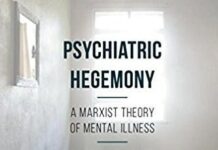My Story of Benzo Withdrawal and Activism
My story starts in 1976. I had a nervous breakdown whilst studying for my Accountancy Technician examination. I was then prescribed a series of benzodiazepine/anti depressant drugs for 5 years. I have been campaigning for the last 28 years at local, national and international level on this public health scandal and government cover-up. The following questions need to be asked to those responsible: Why have the doctors and psychiatrists ignored the 1988 Committee on Safety of Medicines Guidelines on the prescribing of benzodiazepines? Why are the same physicians making the same mistakes with the newer drugs?
The Unforeseen Relationship: Psychiatric Medication and Spirituality
In 2015 I completed a qualitative research study exploring the interrelationship between psychiatric medication and spirituality. The key finding was that people were engaging spiritually with their prescriptions in ways that significantly impacted the course and outcome of recovery.
Into the Woods: A Path Through Anxiety
As individuals, psychiatrists are undoubtedly well-intentioned. But the Prozac paradigm undermines the path of acceptance by its very agenda to “get rid of” or “fix” anxiety. It is by its nature a resistance — and what you resist, tends to persist.
Study 329: Psychiatry’s Thalidomide Moment, Part 2
Nobody has retracted or apologized for a study that was an academic disgrace—but a marketing coup for GSK—which may well have caused untold numbers of deaths, suicide attempts and irreversible anguish to myriad families. Can we stand idly by when we’re told that it “accurately reflects the honestly-held views of the clinical investigator authors who do not agree that the article is false, fraudulent or misleading.”? What is the current market value of the honestly-held views of people who tell lies?
The Ghost of Research Future
Two facts about Robert Califf are beyond question. He is an expert on clinical trials, who is already seen as a leading architect of the future of medical research. And as the New York Times put it, he has “deeper ties to the pharmaceutical industry than any FDA commissioner in recent memory”. A lot of senior figures in medicine support Califf in spite of his ties to Pharma. The guy is just so bright, and understands the nuts and bolts of drug research so well! Surely a person like this is more useful than some outsider who offers only a squeaky-clean resume, they argue.
Saving Congressman Murphy from Fraudulent Information
I’ve come to realize that the very good intentions of Congressman Murphy to fix an obviously not-working mental health prevention, intervention, and treatment “system” has caused him to be swarmed by a flock of flatterers flogging fraudulent “facts.” Thus, at the behest of my colleague, I wrote a letter to Congressman Murphy, who is obviously a leader for issues of mental health. My letter was delivered to him personally, and I share much of it here. The more I thought about the pickle the Congressman is in—surrounded by people either flattering him or yelling at him—the more compassion I have for him as a human trying thread his way through the siren songs.
Towards the Re-politicization of “Mental Illness”
In the models of other social movements, I implore us to advance a multifaceted, structural, cultural, and political analysis of mental illness in America, to illuminate the reality and mechanisms of sanism, and to then envision and implement ways of organizing American life around it that do not limit our potential for flourishing so drastically.
Michael Samuel Bloom
by Chaya Grossberg
July 25, 2012
He also told me the shrinks were changing around his drugs and adding more. They added an antidepressant or two to the Lithium and increased doses and eventually he seemed to have very little life left in him. Our phone calls became trying for he was so down, practically dead sounding a lot of the time, and I felt unable to do anything or say anything to make a difference. To even try felt futile and I wondered if talking to me at all was becoming the burden of yet another person he couldn't connect with.
In the early years, he liked to think of us as being in the same boat, both mentally ill, since I'd also had a meltdown and I also am extremely sensitive and go through extreme states. But as the years went by, especially towards the end, I seemed to be in the ever growing “other” camp in his eyes, which meant I was yet another person who didn't get what it was like to be him. And at that point I can confirm I did not, and perhaps did not want to.
Hegemonic Sanity and Suicide
The “good” suicide attempt survivor wakes up in a hospital bed bathed in beautiful natural light, surrounded by the people who love them most, and they realize that their thinking was flawed and all those unsolvable problems can actually be solved if they are just compliant with medication and therapy. And then there's the “bad” suicide attempter who is angry that they lived, who challenges the status quo.
On Spiritual Emergence and Other Extraordinary Experiences
In a nutshell, I switched coasts and moved from Philadelphia to attend CIIS in San Francisco, because I couldn’t tell my story. In Philly I was known for my role as Storytelling Training Trainer, in which I facilitated a workshop to help people share their stories of mental health and substance abuse recovery. But I never felt I could tell my own real story, because the culture there wouldn’t allow it. The culture allowed me to be a person diagnosed with bipolar with psychotic episodes, who was living a meaningful life, but it did not allow me to be a person who is undergoing a very profound developmental process where my psyche was perceiving and processing my universe in ways that were shifting my paradigm of the potential of what reality can be, which for me, is a very spiritual process, and my true story.
Neuroqueering Judaism: Reflections on Mad Passover
For our Haggadah, the reading material that guides the Seder activities, we included a list of the 10 modern plagues: psychiatric incarceration, forced drugging, electroshock therapy, restraint, seclusion, coercive behavior therapies, outpatient commitment, the pathology paradigm, sanism, and societal coercion to recover.
Current Research on Outpatient Commitment Laws (“Laura’s Law” in California)
Outpatient commitment laws, passed by a number of states, permit forced commitment to treatment of those whom a psychiatrist, psychologist, or mental health official deems in need of treatment. The majority of this “treatment,” while not specifically written in the law, results in coercive tactics to pressure agreement to take pharmaceutical preparations of limited-to-no effectiveness but - as shown in early research - with massive effects on cognitive functions and subsequent decision-making ability, not to mention a long-term or lifelong diminished quality of life and ability to function as a productive member of society.
Chinese Medicine for Emotional Healing
Chinese medicine offers one proven path to emotional balance and harmony for many people who struggle with anxiety or depression. Many people who receive treatment from a licensed acupuncturist experience significant benefit, and don’t need to take psychiatric drugs.
Tranquilizing Humanity into Oblivion: A Warning from Nathan S. Kline
Widely heralded as the father of American psychopharmacology, Kline insisted that his discoveries were adjunctive to psychotherapy, not replacements. The psychopharmacology of Kline's era recognized that medications are a blunt instrument.
Mental Illness & Violence
America’s answer to questions, demonstrations, and other countries is - increasingly - to don riot gear and show up with big guns no matter the issue. Today, April 3, 2014 the Murphy Bill will be debated by a House subcommittee. It appears to ask for dollars to help those diagnosed with mental illness, but it is Orwellian doublespeak for taking rights away, forcing treatment, and placing blame on the people who are more likely to be the victims of violence than the perpetrators. Why not address violence as the cause of violence?
Psychiatric Hegemony: A Marxist Theory of Mental Illness
In Psychiatric Hegemony: A Marxist Theory of Mental Illness, Bruce Cohen explains the expanding power and influence of psychiatry in terms of its usefulness to the capitalist system — the more useful it is, the more power it is given, and the greater its power, the more useful it becomes.
Responding to Claims that the Benefits of Antipsychotics Outweigh the Risks
For my doctorate research, I talked with 144 people who take or have taken antipsychotics and a third reported overall positive experiences. Another third said quite the opposite, and I can hear them yelling at me to share their side of the story.
America’s Sweetheart
Justina Pelletier, a fifteen-year-old girl from West Hartford, Connecticut, has captured the heart of the American public. Whether or not Justina Pelletier may survive her ordeal is yet to be determined. Thousands of people nationwide are praying. What is certain at this point, is that Justina is truly America's Sweetheart and she will never be forgotten.
Optimizing Mental Wellness Through Nutrient Therapy: A Gastroenterologist’s Perspective
It was hard to believe, initially, that nutrient therapy could have that profound an impact. My son’s remarkable recovery with “just nutrients” has made me question the entire medical model behind ADHD and other neurobehavioral disorders.
The Hallucination in the Room
I recently read Rachel Waddingham’s excellent post (Me & the Meds: The Story of a Dysfunctional Relationship) on how she eventually managed to get off meds and take control of her hallucinations. This particular piece struck home with me because it illustrates that the biggest problem with the direction psychiatry has taken in the past fifty years is not the meds (acknowledging that meds are a big problem) but the refusal to deal with the obvious: Hallucinations.
Some Thoughts About Conferences
Without judging the motivation of people presenting and speaking at conferences, I’d like to ask the question: can we achieve more with these conferences than generating knowledge and touching people's hearts? Are we preparing the ground for change or are we marking time?
The Woeful Underfunding of Psychotherapy by Health Insurers
Psychotherapy reimbursement rates have been in decline for decades, even though insurance premiums have risen sharply. This is mystifying given that the vast majority of people prefer psychotherapy over medications, science shows it rivals the benefits of medications, and it saves insurance carriers money.
Brain Disease or Existential Crisis?
As the schizophrenia/psychosis recovery research continues to emerge, we discover increasing evidence that psychosis is not caused by a disease of the brain, but...
Rejecting the “Medications for Schizophrenia” Narrative: A Survivor’s Response to Pies and Whitaker
As a psychiatric survivor who has personally experienced severe psychosis, my criticisms focus on the relative lack of attention to what psychiatric drugs actually are, and on the uncertain, contested nature of the supposed target of these drugs: “schizophrenia.” I will elaborate on each of these points with references, as well as highlighting alternative approaches to helping psychotic people.
More Delays on Sandy Hook Reports
The Sandy Hook Advisory Commission (SHAC) and the State Child Advocate's office still have produced no reports, and the deadlines continually come and go, with virtually no interest on the part of Governor Malloy or Connecticut state lawmakers. What is of interest, though, is the complete run-around and disconnect by those involved in producing the reports.




















